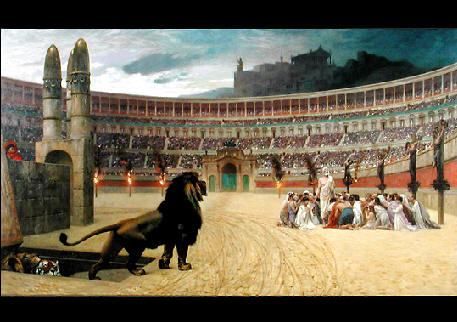|
restoring our biblical and constitutional foundations
|
Followers of Jesus
The fact that modern evangelicalism has embraced non-biblical models of ministry is more than a curiosity. Somewhere along the way we have lost our biblical moorings. Human models based on anthropology and psychology are now all the vogue. The world and its “boastful pride of life” have never lost their allure.
All I can hope to have learned from the 53 years I have spent in this world is that the world itself only becomes dear and habitable when we who inhabit it know we are but migrants. Rather than following the world, we are called to be followers of Jesus. By “followers of Jesus” I do not mean mere admirers of Jesus, but people radically committed to following His example and teachings – a minority group, if you will, within a culture created by Christian majority groups.
When I wrote in my 1984 book Paul, Apostle of
Weakness that power is weakness and weakness strength I meant to
promote not otherworldly mysticism but the deepest reality of all: that
the way up is down, that weakness wins, that the Lamb who was slain is
worthy to receive power and might and glory and honor. Had Paul lived four
centuries later he no doubt would have been appalled that the persecuted
 church had entered into an unholy alliance with the dominant political and
economic power of the world. Nor do I think he would have found any
pleasure in the evolution of Christianity into sacerdotal clericalism at
the expense of every-member ministry. Paul called his followers to imitate
him – and Christ – in renouncing dominion and in favor of servanthood.
church had entered into an unholy alliance with the dominant political and
economic power of the world. Nor do I think he would have found any
pleasure in the evolution of Christianity into sacerdotal clericalism at
the expense of every-member ministry. Paul called his followers to imitate
him – and Christ – in renouncing dominion and in favor of servanthood.
Does this mean that followers of Christ – that this Christian minority within a Christian majority – has nothing to say to the rest of society? Hardly. If I understand the New Testament aright, the church is to take on a nonconformist and prophetic identity over against the structure of “the world.” This is not to say that I am not concerned about politics or about the improvement of society through legislation (e.g., against aborticide). Such improvements are however questionable if they proceed from an assumption that they will issue in a Christian America. My concern is that the church be the church, and to do that she must proclaim victory not through a political agenda but through the Christian gospel. The Christianity of the New Testament presents not simply a more demanding ethic but rather a cross that means the death of our desire for prosperity and power. I therefore view my participation in the culture wars not in terms of calling for a macro-political utopia but in terms of the church’s calling to be the conscience and critic of culture.
When, then, does it mean to be “followers of Jesus” in today’s world? What it does not mean is that we are free from responsibility in the world – free to sit around and stew, free to be passive sheep, free to be blind to the sins of nationalism, or statism, or militarism, or any of the other -isms that plague us. Nor does it mean that we adopt the stratagem of the Herodians and the Sadducees of Jesus’ day – doing the best we can under the circumstances, compromising our religious convictions for political advantage, going along to get along. Neither passive withdrawal nor pro-establishment politicking will do. It all comes down to this: if we are to be followers of Jesus we must be salt and light, we must preach the good news to the poor, we must be God’s people in the world, putting into practice the different quality of life that is promised to all who follow Him in obedience and love.
It means, perhaps above all, reserving allegiance to Christ and not to any worldly Caesar. “We reject the false doctrine that the Church can and must acknowledge as a source of its proclamation, beside and in addition to this one Word of God, other elements, powers, forms and truths as the revelation of God” (Barmen Declaration Article 1). Barmen is still valid today. Those who are followers of Jesus are set apart from others by their confession of Jesus as Lord (a political title) and their adherence to the one Word of God as their infallible guide.
August 24, 2005
David Alan Black is the editor of www.daveblackonline.com. If you would like to know more about becoming a follower of King Jesus, please feel free to write Dave.